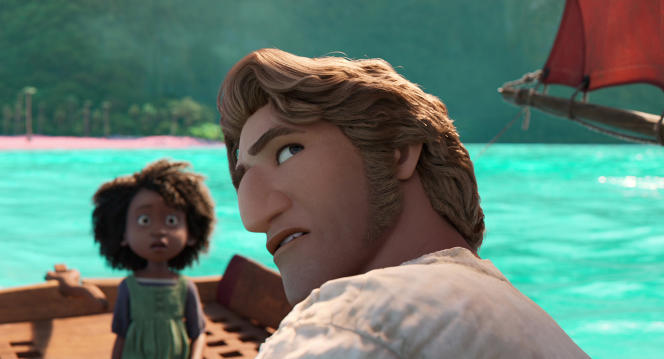It was a tradition: every morning, at the entrance to the Dubbing Brothers studios, in Saint-Denis, in the Parisian suburbs, actors and actresses came to introduce themselves to the artistic directors in charge of recruiting the French voices for films and series. in the process of dubbing, hoping to leave with a job. But that was before. Before Covid-19, of course, but especially before Netflix, Amazon, Disney, Apple TV and other streaming platforms imposed drastic confidentiality conditions on their service providers. It is now impossible to improvise and let into the buildings “non-contractors” who have not formally committed not to leak any information.
The art of dubbing, long at two speeds (tight budgets and mediocre quality for TV, more comfortable envelope for cinema), has entered a new era: platforms and their millions of minutes have suddenly transformed this craft into a true globalized industry, with increasingly demanding quality criteria. In 1997, in the United States, Netflix was launched, now available everywhere in the world (except China), and Prime Video, launched by Amazon. In 2019, Apple and Disney followed suit, with their video-on-demand channels (Apple TV and Disney).
Over 83,300 hours of dubbed content
The resulting avalanche of productions is shaking up the small world of dubbing: in 2021, Netflix had five million minutes of content dubbed (i.e. more than 83,300 hours), in thirty-four languages. Their next animated film, The Sea Beast (on line July 8), directed by Disney alumnus Chris Williams, will be available in French, Spanish, German, Turkish, Japanese or Italian, but also in Basque, in Galician (a first), as well as in Catalan.
For the Indian territory, the original voices will be adapted by local actors in Hindi, Tamil and Telugu. To “make the stories travel”, as Catherine Retat, director of international dubbing and creative services, poetically puts it, the American company relies on a plethora of and increasingly refined offer. Each French production is thus made available throughout the world in eight to thirteen languages.
To carry out these meticulous undertakings, Netflix uses specialist contractors around the world to translate, adapt, record and mix local voices. A work coordinated from Paris by Catherine Retat. After twenty years at Warner and a few years at Disney in London, this punchy blonde meticulously respects the platform’s wooden protocol: reluctant to talk numbers (to, she says, “maintain the magic”), she boasts world-renowned French expertise in dubbing. “We have the best technical and artistic dubbing in the world,” she explains. And because, in Europe, there are a lot of languages, it is obvious to be based here. »
Professionals often come from the theater
To understand the impact of the rise of platforms on this little-known craft, an appointment was made in mid-May with Dubbing Brothers, one of Netflix’s preferred subcontractors. Founded in 1989 by Philippe Taïeb, before being taken over in the 2000s by his two sons, Alexandre and Mathieu, the company is one of the flagships of French dubbing.
Established for a few years in Germany, Italy, Spain and the United States, Dubbing officiates for cinema and television (The Young and the Restless, House of Cards, Star Wars or Toy Story), but has seen open up a world of opportunity when Netflix arrives. Their recently refurbished premises in Saint-Denis look like a campus.
In the nineteen rooms available, we detect (the preparatory work that allows the translation to stick to the mouth movements of the actors), we record, we mix… A few kilometers away, a second site has sixteen additional rooms. A third is under construction. With its 200 employees in France, and 450 worldwide, Dubbing is one of the market leaders. “Of course, the arrival of platforms has changed demand,” explains Mathieu Taïeb. They provide more content, but above all have brought about an alignment of quality requirements with cinema standards. »
For this, Dubbing Brothers and its competitors use professional actors, often from the theater (which allows them to work during the day in the studio and devote their evenings to the stage). For The Sea Beast, about ten actors were cast for the main roles, to which are added about thirty additional voices for the secondary characters. All are paid at the rate provided for by the national dubbing wage agreement except for the stars, for whom an over-the-counter agreement can be negotiated. A windfall for the dubbing industry, the cost of which Netflix refuses to reveal, but which allows the Hollywood company to impose itself everywhere on the planet. Runoff in action.

















